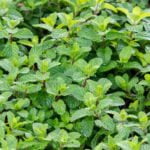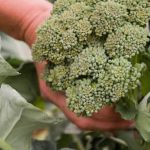Is pine bark mulch recommended for vegetable gardens? When it comes to mulching in vegetable gardens, choosing the right type of mulch is essential for promoting healthy plant growth and maximizing crop yields. Mulching offers various benefits, such as weed suppression, moisture retention, and temperature regulation. In this article, we will explore the different types of mulch available for vegetable gardens and take a closer look at pine bark mulch in particular.
Mulching plays a crucial role in maintaining the health and productivity of vegetable gardens. By covering the soil with a layer of organic or inorganic materials, mulch helps to suppress weed growth, conserve moisture, and regulate soil temperature. It also provides a protective barrier that reduces the risk of erosion and compaction. However, not all types of mulch are suitable for vegetable gardens, making it important to choose the right one for your specific needs.
When it comes to selecting mulch for a vegetable garden, there are numerous options available, including straw, grass clippings, wood chips, and plastic film. Each type of mulch offers unique characteristics and benefits that can impact plant health and garden productivity.
One popular choice among gardeners is pine bark mulch due to its natural composition, texture, and nutrient content. Let’s dive deeper into the details of using pine bark mulch in a vegetable garden and evaluate its suitability for this purpose.
Benefits of Mulching
When it comes to mulching in vegetable gardens, choosing the right type of mulch is crucial for promoting healthy plant growth and maximizing yields. One popular option that has gained attention among gardeners is pine bark mulch. This organic mulching material is known for its numerous benefits, making it a recommended choice for vegetable gardens.
Pine bark mulch offers superior weed suppression, which helps prevent weeds from competing with vegetable plants for essential nutrients and water. By creating a barrier that inhibits weed growth, this mulch can save gardeners valuable time and effort that would otherwise be spent on manual weeding. In addition to weed control, pine bark mulch also aids in retaining moisture in the soil, reducing the need for frequent watering and helping vegetables thrive even during dry spells.
Furthermore, pine bark mulch provides effective temperature regulation in vegetable gardens. During hot weather, it acts as insulation for the soil, keeping temperatures cooler and minimizing moisture evaporation. Conversely, in cooler weather, the mulch helps to maintain a more stable soil temperature, protecting plant roots from temperature extremes. Overall, the benefits of using pine bark mulch in vegetable gardens are highly advantageous when it comes to promoting optimal growing conditions for a variety of crops.
| Benefit | Description |
|---|---|
| Weed Suppression | Pine bark mulch creates a barrier that inhibits weed growth, saving time and effort on manual weeding. |
| Moisture Retention | The mulch helps reduce the need for frequent watering by retaining moisture in the soil. |
| Temperature Regulation | Pine bark mulch acts as insulation during hot weather and maintains stable soil temperatures during cooler weather. |
Types of Mulch
Pine bark mulch is just one of several options available for gardeners. Other common organic mulches include straw, compost, grass clippings, and wood chips. Inorganic mulch options include rocks, rubber, and landscape fabric. Each type has its own set of pros and cons, so it’s important to choose the right mulch for your specific gardening needs.
Organic mulches such as pine bark decompose over time and can add valuable nutrients to the soil. This is particularly true for wood-based mulches like pine bark, which can increase soil acidity as they break down. Inorganic mulches don’t decompose but provide effective weed suppression and moisture retention. The choice between organic and inorganic mulch mostly comes down to personal preference, though some gardeners prefer organic due to its ability to enrich the soil.
When selecting a mulch for your vegetable garden, consider factors such as climate, soil type, the specific needs of your plants, and the level of maintenance you’re willing to commit to. Pine bark mulch can be ideal for acid-loving plants like blueberries or azaleas but may not be as well-suited for all types of vegetables. It’s also important to ensure any mulch you choose won’t compact densely or attract pests that could harm your plants.
| Types | Pros | Cons |
|---|---|---|
| Pine Bark Mulch | Improves soil structure and promotes healthy plant growth. | Risk of nitrogen depletion. |
| Straw | Provides good insulation – helps protect vegetables from disease. | Potential nesting material for rodents. |
| Landscape Fabric | Long-lasting weed control. |
Pine Bark Mulch
In terms of nutrient content, pine bark mulch tends to be lower in nitrogen compared to other organic mulches such as compost or manure. However, it does contain essential trace elements that can slowly release into the soil over time, contributing to overall soil health. Additionally, pine bark mulch has a natural resistance to decay and can last longer than other types of organic mulch, making it a cost-effective option for long-term use in vegetable gardens.
When selecting pine bark mulch for your vegetable garden, it’s important to choose a quality product that is free from additives or chemicals that could be harmful to your plants. Look for finely textured pine bark mulch that has been properly aged and cured to ensure that it will not compete with your vegetables for nutrients. Consider these key factors when deciding if pine bark mulch is the right choice for your vegetable garden:
- Composition and texture
- Nutrient content
- Longevity
- Lack of harmful additives
By carefully considering these aspects of pine bark mulch, you can determine whether it is suitable for use in your specific gardening needs.
Pros of Using Pine Bark Mulch
Pine bark mulch offers numerous benefits for vegetable gardens, making it a popular choice among gardeners. Here are some of the key advantages of using pine bark mulch:
- Improves Soil Structure: Pine bark mulch can enhance soil aeration and drainage, creating a healthier environment for plant roots to thrive. This is particularly beneficial for vegetables that require well-draining soil to prevent waterlogged conditions.
- Retains Moisture: One of the significant advantages of pine bark mulch is its ability to retain moisture in the soil. By reducing evaporation, this type of mulch helps ensure that vegetable plants have consistent access to water, which is essential for proper growth and development.
- Promotes Healthy Plant Growth: The slow decomposition of pine bark mulch enriches the soil with organic matter and essential nutrients, contributing to improved plant growth and overall productivity in the vegetable garden.
In addition to these benefits, pine bark mulch also serves as a natural weed suppressant, reducing the need for frequent weeding and minimizing competition for nutrients among vegetable plants. Its attractive appearance adds aesthetic appeal to the garden while providing insulation to regulate soil temperature during extreme weather conditions.
By using pine bark mulch in your vegetable garden, you can create an environment conducive to healthy plant growth while simplifying maintenance tasks and enhancing the overall visual appeal of your garden space.
Cons of Using Pine Bark Mulch
When considering using pine bark mulch in vegetable gardens, it is essential to be aware of some potential drawbacks or limitations that come with this type of mulch. One significant concern when using pine bark mulch is the risk of nitrogen depletion in the soil.
As pine bark mulch decomposes, it can tie up nitrogen from the soil, making it less available for plants to use. This can result in nitrogen deficiency for the vegetable plants, which can ultimately hinder their growth and overall productivity.
Impact on Soil Fertility
Another important consideration when using pine bark mulch in vegetable gardens is its impact on soil fertility. Since pine bark mulch takes a longer time to break down compared to other organic mulches, it may not contribute as much to improving soil fertility and structure.
This means that while pine bark mulch can provide short-term benefits such as weed suppression and moisture retention, it may not offer the same long-term advantages for soil health as some other types of organic mulches.
Acidification of Soil
Additionally, pine bark mulch has the potential to acidify the soil over time as it decomposes. While this characteristic can be beneficial for acid-loving plants such as blueberries, it may pose a challenge for vegetables that prefer neutral or slightly alkaline soil conditions. Gardeners should take into account the existing pH levels of their garden soil and consider whether using pine bark mulch might shift the pH to a less favorable range for their vegetable crops.
Recommendations for Using Pine Bark Mulch
Proper Application Methods
When using pine bark mulch in a vegetable garden, it is important to apply it properly to ensure maximum effectiveness. The first step is to prepare the soil by removing any weeds and debris. Once the area is clear, the mulch can be spread evenly around the base of the plants.
It is recommended to apply a layer of pine bark mulch that is about 2-3 inches thick. Be careful not to pile the mulch directly against the stems or trunks of plants, as this can lead to moisture issues and potential rot.
Maintenance Tips
Regular maintenance is essential for ensuring that pine bark mulch continues to provide benefits to your vegetable garden. One important aspect of maintenance is checking the depth of the mulch layer every few months and adding more as needed to maintain the 2-3 inch thickness.
Additionally, it’s crucial to keep an eye on the moisture levels in the soil, as pine bark mulch can help retain moisture but may also prevent water from penetrating if it becomes too compacted. Lastly, periodically turning over or fluffing up the mulch can help improve air circulation and prevent it from forming a hard crust.
Choosing High-Quality Pine Bark Mulch
To ensure that you are getting the most out of using pine bark mulch in your vegetable garden, it’s important to choose a high-quality product. Look for pine bark mulch that is free from added dyes or chemicals and has a good mix of different particle sizes for optimal coverage.
Additionally, consider sourcing your pine bark mulch from reputable suppliers who follow sustainable harvesting practices. By investing in quality pine bark mulch, you can maximize its benefits for your vegetable garden while minimizing any potential drawbacks associated with lower-grade products.
Conclusion
In conclusion, pine bark mulch can be a beneficial option for vegetable gardens due to its ability to improve soil structure, retain moisture, and promote healthy plant growth. While it may have some drawbacks, such as the potential risk of nitrogen depletion, these can be effectively managed with proper application methods and maintenance.
When considering the use of pine bark mulch in vegetable gardens, gardeners should weigh the pros and cons to determine if it aligns with their specific gardening needs and goals.
It is important to note that pine bark mulch is just one of many options available for mulching in vegetable gardens. Before making a decision, gardeners should also consider other organic and inorganic mulches to find the best fit for their garden. By understanding the benefits and limitations of each type of mulch, individuals can make an informed choice that will contribute to the overall health and productivity of their vegetable garden.
Ultimately, while pine bark mulch is recommended for its ability to enrich soil and support plant growth in vegetable gardens, it is important for gardeners to evaluate their specific gardening goals and needs before selecting a mulch. With proper consideration and maintenance, pine bark mulch can be a valuable addition to a successful vegetable garden.
Frequently Asked Questions
Is Pine Bark Mulch Safe for Vegetable Gardens?
Pine bark mulch can be safe for vegetable gardens, but there are some things to consider. While pine bark does help with moisture retention and weed suppression, it can also acidify the soil over time, which may not be ideal for all vegetables.
It’s important to monitor the pH levels of your soil if you choose to use pine bark mulch and adjust as needed to ensure the health of your vegetable plants.
Is Pine Bark Mulch Good for Tomatoes?
Pine bark mulch can benefit tomato plants in several ways. It helps regulate soil temperature, retain moisture, and suppress weeds around the tomato plants.
However, like with any mulch, it’s important to monitor the pH levels of the soil since pine bark mulch can slightly acidify the soil over time. Overall, many gardeners have had success using pine bark mulch for their tomatoes, but it’s essential to keep an eye on any changes in soil acidity.
What Is the Best Mulch for a Vegetable Garden?
The best mulch for a vegetable garden ultimately depends on your specific needs and preferences. Organic options like straw or shredded leaves are popular choices because they break down over time and contribute valuable nutrients to the soil.
Meanwhile, materials like plastic or rubber mulch provide excellent weed suppression and moisture retention benefits. Consider factors such as climate, availability of materials, and the specific needs of your vegetable crops when choosing the best mulch for your garden.

If you’re looking to get into vegetable gardening, or are just looking for some tips on how to make your current garden better, then you’ve come to the right place! My name is Ethel and I have been gardening for years. In this blog, I’m going to share with you some of my best tips on how to create a successful vegetable garden.





